Reports estimate that the use of asphalt shingles will reach 136.9 million squares by 2021 with North America accounting for over 80% of the overall asphalt market share. Asphalt shingles are durable, reasonable priced (particularly compared to other roofing materials), and don’t require any additional framing to support their weight. On average, an asphalt shingle roof will provide you and your family reasonable protection for an estimated 15-20 years. With asphalt shingles being so common, it’s understandable that homeowners may have questions. Here are the answers to the most common shingle questions homeowners have when considering a shingle roof.
What is a shingle?
While this may seem like common knowledge, it is important to note that a lot of common roofing materials are available in shingle styling. In fact, Merriam-Webster defines shingle as “a small thin piece of building material often with one end thicker than the other for laying in overlapping rows as a covering for a roof or sides of a building.” Materials such as wood, slate, and composite can often be purchased in shingle form. So, yes there are different types of shingles. However, most people, when discussing shingles, are referring to asphalt shingles.
Anatomy of a shingle
While there are multiple types of shingles made from a variety of materials, you will also find variety in actual asphalt shingles. The choice of most homeowners and contractors, fiberglass shingles are made of a woven fiberglass base mat, and then covered with a waterproof asphalt coating, while finally topped with a ceramic granule that over UV ray protection. Although they were only developed in the 1980s, fiberglass is quickly replacing the heavier, thicker, and more expensive organic shingle. Whether organic or fiberglass, asphalt shingles come in two different types: laminated shingles (otherwise referred to as “architectural” shingles) and three-tab shingles, while generally measuring 12 by 36 inches per shingle.
Three-tab shingles
Three-tab shingles are made in a single layer are easily recognized by the simple three-tab pattern. Simply put, each shingle looks like three separate pieces when installed. However, it is only one. Additionally, they are flatter and thinner compared to their architectural counterparts. Most three-tab shingles come with a 10 to 25-year limited manufacturer warranty. Three-tab is considered the most economical and the most common shingle still in use today.
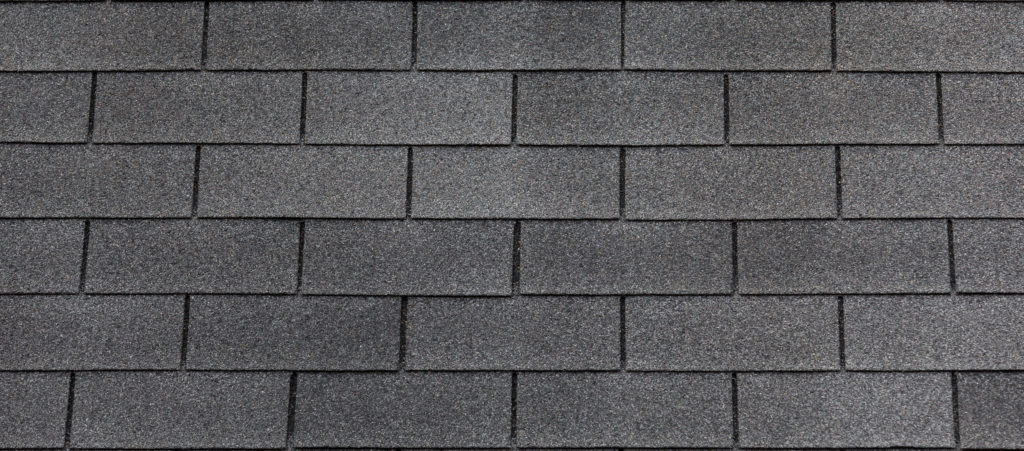
Architectural shingles
Architectural shingles do not contain cutouts like the three-tab shingle. Instead, their lower portions are layered with additional asphalt. This creates the dimensional, or architectural, look their name references. When you pair the layering with their thickness and depth, your roof will look more like a wood or slate roof with a dimensional feel. Architectural shingles often come with a limited warranty of approximately 20 to 50 years from the manufacturer.
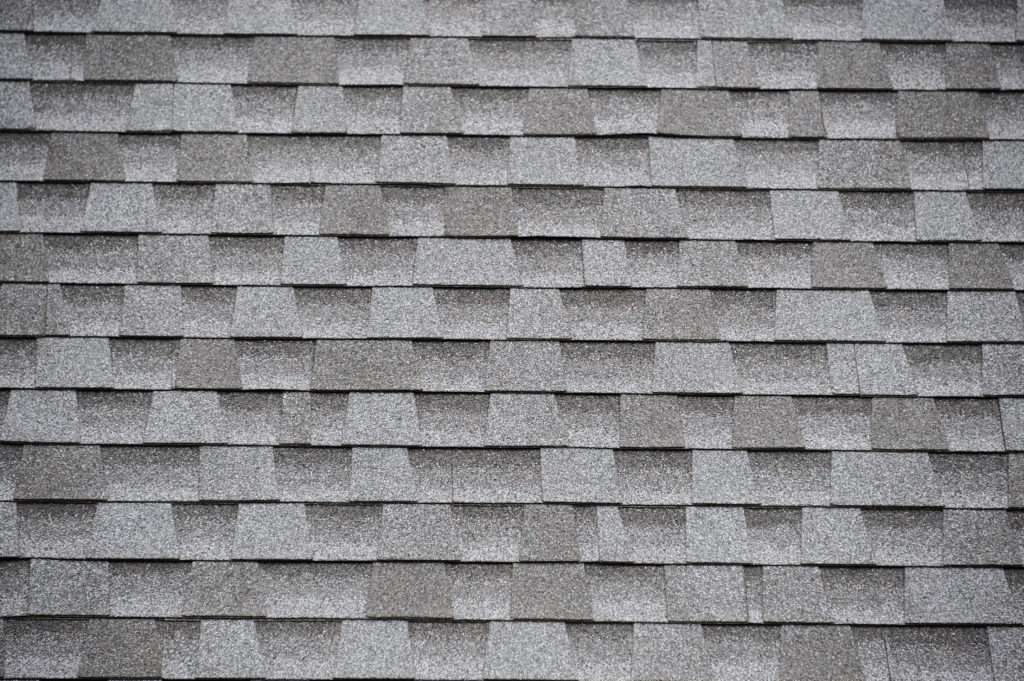
The Look of a Shingle
Believe it or not, oftentimes, asphalt shingles are not as easy to identify as they once were. The aesthetics of asphalt shingles have undergone an incredible evolution. Asphalt shingles are now available in a wide variety of colors, looks, and different shapes. A weathered look will ensure your new roof matches your vintage home. Variegated provides a beautiful mix of light and dark tones. Popular colors are various shades of gray, beige, browns, and even shades of blue and green. Many manufacturers offer interactive planners that help you visualize what your roof would look like with a particular shingle choice.
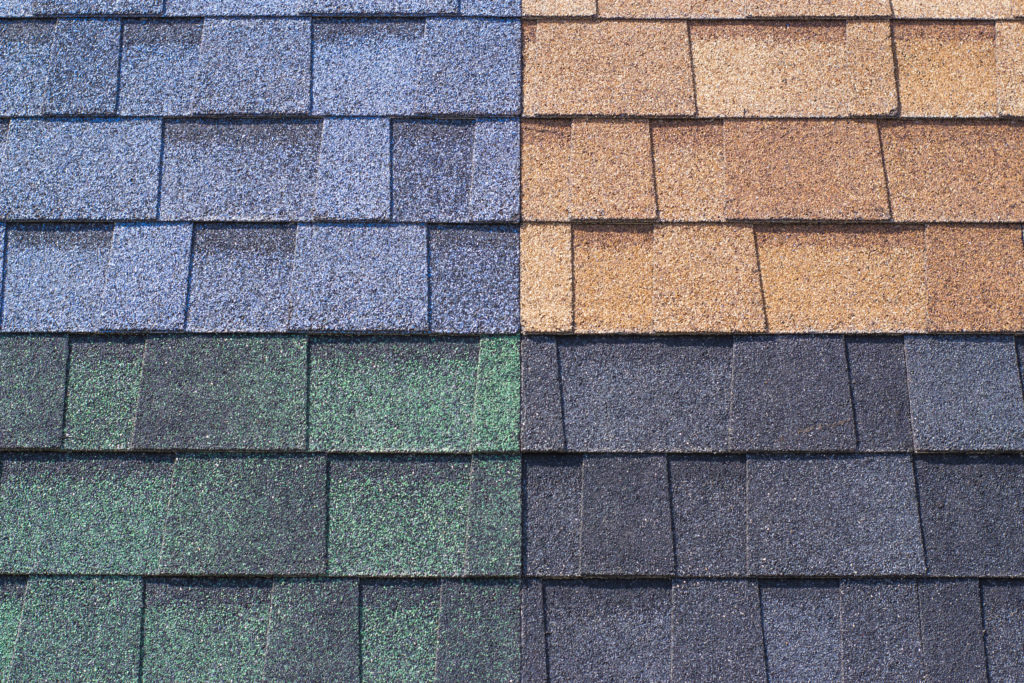
20 Years, 30 Years, 50 Years- How long will my shingles last?
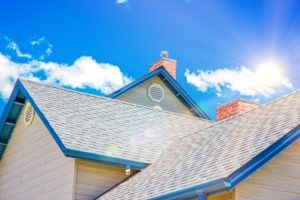
Do 30-year shingles really last 30 years? Is there a 50-year shingle? Will a 50-year shingle really last 50 years? Most of the common shingle questions people have are about how long they will last. Replacing your roof is a sizable expense. Of course, you want to be certain you are maximizing your investment.
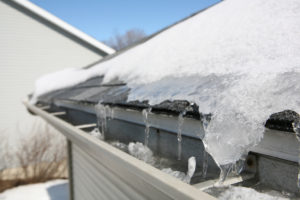
Unfortunately, there is really no way to guarantee any roofing material for a particular span of time. Why? There are too many factors that can affect the life of a shingle- such as climate, weather, and environment. Has your roof weathered the wrath of a natural disaster? Or, does your roof endure long periods of extreme heat? Is the climate in your area known for varying greatly (i.e. 100-degree days and 50-degree nights)? Conversely, does your roof experience severe winters, ice, and has to bear the weight of snow for extended periods of time?
Additionally, the pitch of your roof can play a factor. In short, the steeper your roof, the less likely it is to experience a build-up of water, ice, debris, or even algae and fungus. Reducing build-up will help extend the life of your roof. If you live in a damp or subtropical area, you may want to consider algae-resistant shingles to combat long-term damage or discoloration.
This Brand or That Brand- Which one is better?

When the time comes for your home to need a new roof, and you start meeting with estimators, chances are you will hear the name of different shingle manufacturers. It’s understandable to question whether you should go with one manufacturer over the other. After all, we often tend to shop for goods and services based on a company’s reputation, right?
You could spend hours online researching GAF versus CertainTeed versus Tamko, or Googling other common shingle questions such as:
Are GAF shingles good?
How long do CertainTeed landmark shingles last?
Are GAF shingles or CertainTeed shingles better?
Should I have Tamko shingles?
It’s a rabbit hole you really want to avoid if you can. After all, every home is different. The answers you find on Google may or may not apply to your home and its specific needs. As we’ve mentioned, there are a lot of factors that can contribute to the life span of your roof. In the end, does brand really matter when selecting a shingle? Not necessarily. Your contractor is the expert. They should choose the product that will meet your needs and expectations. Beyond that, the true difference is your contractor’s commitment to their workmanship. Do they meet or exceed the building codes for your area? What type of extended warranty do they offer? Are there any maintenance plans available? Once installation is complete, a reputable contractor will stand behind the product, regardless of brand, and ensure your new roof is maximizing its potential.
Common shingle questions: In conclusion…
As you can see, there are numerous factors that go into selecting the right roof for your home. Some we covered, such as your aesthetic preference, the design of your home, climate, environment, building codes, and available warranties. With so many factors to consider, it is important to select an established contractor in your area to ensure they have experience with these challenges and can provide you with the insight you need to make the right decision.
Do you have a question we didn’t cover? We’d love to hear from you! Chat with us anytime!